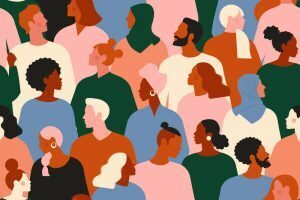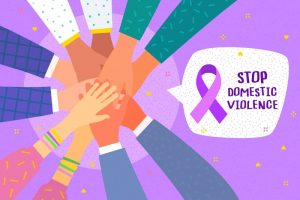
Domestic Violence and the LGBT+ Community
According to the National Coalition Against Domestic Violence, LGBT+ persons are more likely to experience rape, physical violence, or stalking than heterosexual persons.
43.8% of lesbians and 61.1% of bisexual women have experienced rape, physical violence, or stalking by an intimate partner at some point in their lifetime, as opposed to 35% of heterosexual women.
26% of gay men and 37.3% of bisexual men have experienced rape, physical violence, or stalking by an intimate partner in their lifetime, compared to 29% of heterosexual men.
Despite that, the lack of apparent filings appears to indicate LGBT+ persons are less likely to seek protection or assistance, even when those protections and services are available to them.
Some victims of domestic violence fear something more than their abuser. They dread public scorn, ridicule, and bias – Bill Powers, Charlotte Domestic Violence Lawyer
Fear of Bias
In addition to the stress and anxieties of experiencing domestic violence, the pressure of being outed or having one’s sexual orientation or gender identity revealed can cause survivors not to seek assistance for fear of being labeled as a member of the LGBT+ community.
According to a 2013 study of male same-sex couples from the National Coalition of Anti-Violence Programs, only 26% of men called the police for assistance after experiencing near-lethal violence.
Additionally, in 2012, less than 5% of LGBT+ domestic violence survivors sought protective orders.
In North Carolina, same-sex couples have some protections when a relationship turns abusive or violent.
The NC Domestic Violence laws authorize a victim to seek a domestic violence protective order (DVPO), which protects domestic violence survivors from unwanted contact and many other protections such as removing the abuser from a shared home, prohibitions against possessing firearms, and temporary custody of minor children.
Specific categories of people can apply for a DVPO in North Carolina under Chapter 50B-1(b) of the North Carolina General Statutes:
- Current or former spouses
- Persons of the opposite sex who live together or have lived together
- Persons related to one another as parents and children
- Persons who have a child in common
- Current or former household members
- Persons of the opposite sex who are in a dating relationship or have been in a dating relationship. For purposes of this statute, a dating relationship is one wherein the parties are romantically involved over time and on a continuous basis during the course of the relationship.
Unfortunately, LGBT+ persons who are or were in a dating relationship are not specifically enumerated within Chapter 50B. Under a strict reading of the statute, individuals may not be able to apply for a DVPO.
However, change may be on the horizon.
A 2019 case involving a same-sex couple in Wake County has been appealed to the North Carolina Court of Appeals that may remove these exclusions for dating same-sex couples, giving all people Equal Protection under the law, as well as Due Process rights.
Domestic Violence Protective Orders
There are internal inconsistencies in the statute, causing potential problems for LGBT+ couples who are not legally wed.
LGBT+ persons who are or were married may apply for a DVPO since the law does not require spouses to be of the opposite sex.
What should I do if I’m a victim of Domestic Violence?
Until the case is resolved, LGBT persons who are survivors of domestic violence should seek medical attention for any injuries inflicted during the abuse and catalog those injuries.
Any other proof of abuse or violence, physical or otherwise, should likewise be kept.
What happens if a Restraining Order is Violated?
While DVPO’s may not be available to all LGBT persons in abusive or violent relationships, other avenues exist to end contact with the other person, such as having criminal charges brought against the other person.
North Carolina also provides for other forms of Restraining Orders and other “Civil No-Contact Orders,” such as the protections set forth within N.C.G.S. 50C.
If the survivor of domestic violence should seek a DVPO or other legal action against an abuser, they should likewise seek an experienced attorney to assist them in that process.
Charlotte Domestic Violence Lawyers
At Powers Law Firm PA we have years of experience handling North Carolina domestic violence cases and matters concerning DVPOs.
Same-Sex Marriage in North Carolina
We believe in assisting all persons with their legal issues, no matter their sexual orientation or gender identity.
Domestic violence is a difficult and serious matter, often taking a physical and emotional toll.
We encourage victims of Domestic Violence to stand up to their abuser, consider hiring a knowledgeable domestic violence attorney in Charlotte who can help you get a DVPO or consider other options to keep you safe.
With the growing acceptance and prevalence of same-sex couples, it is becoming clear that domestic violence protections will in all likelihood be extended to LGBT +individuals to the same nature and extent as heterosexual counterparts.
Learn More